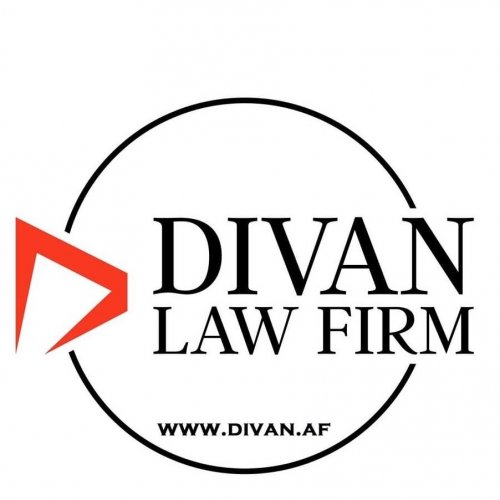Best Foreclosure Lawyers in Afghanistan
Share your needs with us, get contacted by law firms.
Free. Takes 2 min.
Free Guide to Hiring a Real Estate Lawyer
Or refine your search by selecting a city:
List of the best lawyers in Afghanistan
About Foreclosure Law in Afghanistan
Foreclosure in Afghanistan pertains to the legal process through which lenders can repossess property due to the owner's failure to meet mortgage obligations. Given the country's financial and legal landscape, foreclosure proceedings can be complicated and subject to various local customs and legal stipulations. The process typically involves the lender taking legal action to recoup their investment by obtaining ownership of the mortgaged property and subsequently selling it to cover unpaid debts.
Why You May Need a Lawyer
There are numerous scenarios where individuals might require legal assistance in foreclosure cases. These include:
- Understanding complex foreclosure laws and regulations that may not be well-known to laypeople.
- Negotiating with banks or financial institutions to possibly restructure or refinance the loan.
- Assessing the legality of the foreclosure proceedings initiated by the lender.
- Defending against claims of foreclosure and protecting homeowners' rights.
- Aiding in disputing fair market values and valuations of the property being foreclosed.
Local Laws Overview
In Afghanistan, local laws regarding foreclosure can be particularly challenging due to the interplay of customary practices and formal legal procedures. Key aspects include:
- The requirement for lenders to obtain a court order before initiating foreclosure proceedings.
- Legal provisions that may protect certain property owners and borrowers under specific conditions.
- Differences in procedures for urban and rural properties, reflecting Afghanistan's diverse regional practices.
- Potential for dual legal systems where Sharia law might influence the interpretation and execution of foreclosure.
Frequently Asked Questions
What is foreclosure?
Foreclosure is the legal process used by lenders to repossess a property when the borrower fails to keep up with mortgage payments.
How does the foreclosure process start?
Typically, the process begins when a borrower defaults on their mortgage payments, and the lender seeks a court order to repossess the property.
What are my rights as a borrower facing foreclosure?
Borrowers have the right to receive proper notice of foreclosure proceedings and may be entitled to contest them in court.
Can a foreclosure be stopped once it has started?
Yes, in some cases, foreclosure proceedings can be halted if the borrower negotiates new terms with the lender or meets the repayment requirements.
What happens to my property after foreclosure?
After foreclosure, the lender will typically sell the property at auction to recover the remaining loan balance.
What is a redemption period?
The redemption period is the time frame in which a borrower can pay the outstanding debt to reclaim their property even after foreclosure has commenced.
Can foreclosure affect my credit rating?
Yes, foreclosure can have a significant negative impact on your credit rating, making it difficult to obtain future loans.
Are there alternatives to foreclosure?
Alternatives may include loan modification, short sales, repaying missed payments, or deeds in lieu of foreclosure.
How long does the foreclosure process take in Afghanistan?
The timeline can vary depending on the complexity of the case and court availability, among other factors.
Do I need to hire a lawyer for foreclosure issues?
While not mandatory, hiring a lawyer can significantly help in understanding legal rights and navigating complex procedures more effectively.
Additional Resources
If you are facing foreclosure, consider reaching out to the following resources for assistance:
- The Ministry of Justice of Afghanistan for legal frameworks and updates.
- Local legal aid offices and non-governmental organizations that specialize in housing or financial counseling.
- Legal experts who specialize in property and foreclosure law.
Next Steps
If you find yourself needing legal assistance with a foreclosure, consider taking the following steps:
- Gather all pertinent documents related to your mortgage and property ownership.
- Schedule consultations with legal professionals experienced in foreclosure law to discuss your case.
- Explore potential legal aid or pro bono services if affordability is a concern.
- Remain informed about your rights and any developments in your case.
Lawzana helps you find the best lawyers and law firms in Afghanistan through a curated and pre-screened list of qualified legal professionals. Our platform offers rankings and detailed profiles of attorneys and law firms, allowing you to compare based on practice areas, including Foreclosure, experience, and client feedback.
Each profile includes a description of the firm's areas of practice, client reviews, team members and partners, year of establishment, spoken languages, office locations, contact information, social media presence, and any published articles or resources. Most firms on our platform speak English and are experienced in both local and international legal matters.
Get a quote from top-rated law firms in Afghanistan — quickly, securely, and without unnecessary hassle.
Disclaimer:
The information provided on this page is for general informational purposes only and does not constitute legal advice. While we strive to ensure the accuracy and relevance of the content, legal information may change over time, and interpretations of the law can vary. You should always consult with a qualified legal professional for advice specific to your situation.
We disclaim all liability for actions taken or not taken based on the content of this page. If you believe any information is incorrect or outdated, please contact us, and we will review and update it where appropriate.
Browse foreclosure law firms by city in Afghanistan
Refine your search by selecting a city.








